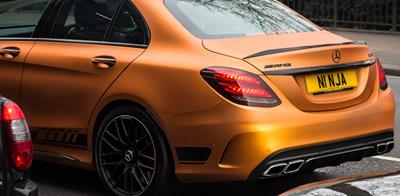
Motorists are increasingly considering the environment when the time comes to choose a new vehicle.
According to figures from the Society of Motor Manufacturers and Traders (SMMT), a record one in 12 drivers went for a hybrid, plug-in hybrid or pure electric car in August. In fact, electric vehicles now account for 8% of the market, its highest ever level.
So, is now the time to go green? What do you need to consider if you’re looking at buying an electric car?
The cost of buying
The first thing to bear in mind is that, at least on the face of it, an electric car will set you back more than a petrol or diesel motor.
That doesn’t tell the whole story though, as the government offers a grant for low-emission vehicles, which means that dealerships and manufacturers can reduce the price that you will actually pay for your new, green motor.
There are seven categories of vehicle, with the size of the grant varying depending on which category the car falls within. For example, a category one vehicle - like the Nissan Leaf and Renault ZOE - qualify for a grant worth up to 35% of the purchase price, capped at £3,500.
You can check out a full run down of what the grant is worth for different vehicles on this section of the government’s website.
What about running costs?
Another plus point is that electric vehicles should work out far cheaper to run than an electric or diesel motor.
Charging your vehicle at home costs around 13p per kilowatt-hour, so getting your motor up to 80% will set you back less than £4.50 according to WhatCar. Even if you rely on public charging points, some of which charge double that rate, it will still cost you a lot less to fuel up than a traditional vehicle.
It’s not just about the refuelling though. Electric vehicles are also exempt from road tax, providing you with a further saving, though you do have to pay an additional £310 a year for five years, from the second time the vehicle is taxed, if it has a list price above £40,000.
What about depreciation?
A common concern among drivers is how much their vehicle loses in value as soon as they drive it off the forecourt.
However, a study in July by HPI found that 11 second-hand motors have actually risen in value over the last year. And the five that have seen the biggest gains - Renault ZOE, Peugeot ION, Citroen C-Zero, Nissan eNV200 and Hyundai Ionic - are all electric cars.
Of course, just because they gained value over the last year, that’s no guarantee that they will continue to do so, but it’s an encouraging sign that electric vehicles can hold onto their value down the line.
Insurance can be more expensive
However, it’s worth noting that electric cars may cost you a little more to insure.
Last year price comparison site CompareTheMarket looked into how policy costs vary between electric motors and traditional ones and found that electric vehicles come with an average premium of almost £1,070, compared to £740 for petrol or diesel vehicles.
Charging points
One of the biggest issues any driver of an electric car needs to consider is how and where they will be able to charge their vehicle.
The last year has seen significant growth in the number of public charging bays open to drivers. Stats from Zap Map show that the number of bays has jumped sharply from 12,539 in February last year up to 17,782 today, with nearly 400 new connectors registered in the last 30 days alone.
Nonetheless, this remains pretty tiny compared to the number of fuel stations available to drivers of traditional vehicles across the country.
It’s also worth noting that there are huge regional variances here. Almost one in four (22.5%) charging points are found in the Greater London area, while the east Midlands has just 4.4% of chargers and Northern Ireland represents a paltry 2.6% of the total number of chargers.
The time that it takes to recharge your vehicle will also be rather different if you’re used to a petrol or diesel car. You may be used to simply filling your car up and then continuing with your journey, but charging a car is rather like charging a smartphone. As a result, if you don’t plan these recharging stops into a lengthy journey, then it can make the actual journey take far longer.

